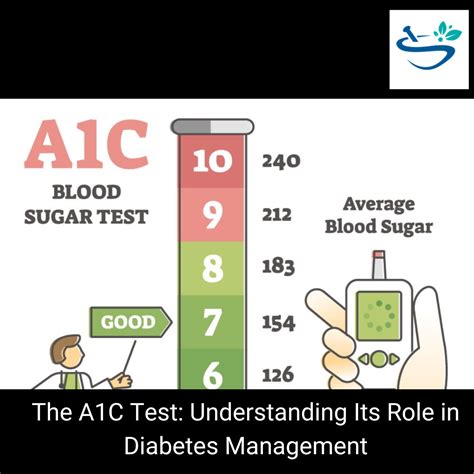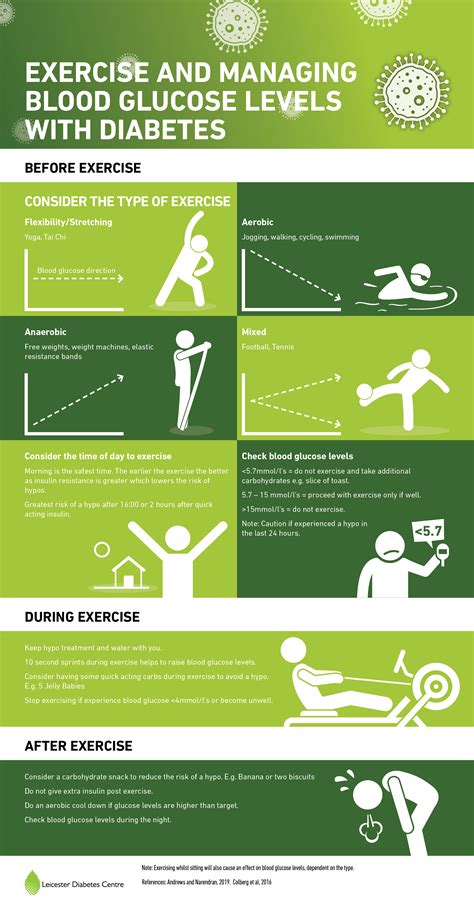Intro
Lower your A1c levels with 5 healthy tips, including diet tweaks, exercise routines, and stress management, to achieve optimal blood sugar control and improve overall diabetes management and wellness.
Maintaining a healthy A1c level is crucial for individuals with diabetes, as it helps to prevent complications and ensure overall well-being. The A1c test measures the average blood glucose levels over the past 2-3 months, providing valuable insights into how well diabetes is being managed. For those looking to improve their A1c levels, it's essential to understand the importance of a comprehensive approach that incorporates lifestyle changes, dietary adjustments, and medical interventions. By adopting healthy habits and being proactive about diabetes management, individuals can significantly reduce their risk of developing related health issues.
Effective A1c management requires a multifaceted strategy that addresses various aspects of health, including diet, physical activity, stress levels, and medication adherence. A well-structured plan can help individuals with diabetes to achieve and maintain optimal A1c levels, thereby minimizing the risk of long-term complications such as heart disease, kidney damage, and nerve damage. Moreover, a healthy A1c level can enhance overall quality of life, increase energy levels, and improve mental well-being. As such, it's vital for individuals with diabetes to be aware of the best practices and tips for managing their condition and achieving a healthy A1c level.
The journey to achieving a healthy A1c level begins with education and awareness. By understanding the factors that influence A1c levels, individuals can make informed decisions about their lifestyle and treatment plan. This includes being aware of the importance of regular monitoring, the role of medication, and the impact of dietary choices on blood glucose levels. Furthermore, developing a supportive network of healthcare professionals, family, and friends can provide the necessary encouragement and motivation to stay on track. With the right mindset, resources, and strategies, individuals with diabetes can effectively manage their condition and achieve a healthy A1c level, leading to a longer, healthier, and more fulfilling life.
Understanding A1c Levels

Factors Influencing A1c Levels
Several factors can influence A1c levels, including dietary choices, physical activity levels, stress, and medication adherence. A healthy diet that is low in added sugars, saturated fats, and refined carbohydrates can help to regulate blood glucose levels and improve A1c levels. Regular physical activity, such as walking or swimming, can also enhance insulin sensitivity and reduce blood glucose levels. Additionally, managing stress through techniques such as meditation or deep breathing can help to minimize the impact of stress on blood glucose levels. By understanding these factors and making informed lifestyle choices, individuals with diabetes can effectively manage their A1c levels and reduce their risk of long-term complications.Healthy Eating for A1c Management

Meal Planning Strategies
Meal planning is a critical component of A1c management, and individuals with diabetes should develop a personalized meal plan that takes into account their lifestyle, preferences, and nutritional needs. This can involve working with a registered dietitian or a certified diabetes educator to develop a comprehensive meal plan that includes a mix of healthy foods, portion control, and regular meal times. Additionally, individuals with diabetes should focus on cooking at home using fresh ingredients, rather than relying on processed or convenience foods. By taking a proactive approach to meal planning, individuals with diabetes can effectively manage their A1c levels and improve their overall health and well-being.Physical Activity for A1c Management

Benefits of Physical Activity
Regular physical activity provides numerous benefits for individuals with diabetes, including improved insulin sensitivity, enhanced cardiovascular health, and reduced inflammation. Physical activity can also help to reduce stress and anxiety, improve mood, and enhance overall quality of life. Furthermore, regular physical activity can help to reduce the risk of long-term complications, such as heart disease, kidney damage, and nerve damage. By incorporating physical activity into their daily routine, individuals with diabetes can take a proactive approach to managing their condition and improving their overall health and well-being.Stress Management for A1c Control

Impact of Stress on A1c Levels
Stress can have a significant impact on A1c levels, as it can cause blood glucose levels to rise and insulin sensitivity to decrease. This can lead to a range of negative effects, including increased inflammation, oxidative stress, and cardiovascular disease. Furthermore, chronic stress can lead to burnout, anxiety, and depression, which can further exacerbate A1c levels and overall health. By developing effective stress management strategies, individuals with diabetes can minimize the impact of stress on their A1c levels and improve their overall health and well-being.Medication Adherence for A1c Management

Importance of Medication Adherence
Medication adherence is essential for A1c management, as it can help to regulate blood glucose levels and improve insulin sensitivity. By taking their medications as directed, individuals with diabetes can reduce their risk of long-term complications, such as heart disease, kidney damage, and nerve damage. Additionally, medication adherence can help to improve overall quality of life, increase energy levels, and enhance mental well-being. By working closely with their healthcare provider and developing a personalized treatment plan, individuals with diabetes can ensure that they are taking their medications effectively and achieving optimal A1c levels.Monitoring and Tracking A1c Levels
Importance of Regular Monitoring
Regular monitoring of A1c levels is essential for diabetes management, as it can help to identify trends and patterns, and inform treatment decisions. By monitoring their A1c levels regularly, individuals with diabetes can catch any potential issues early, and make adjustments to their treatment plan as needed. Additionally, regular monitoring can help to reduce the risk of long-term complications, such as heart disease, kidney damage, and nerve damage. By working closely with their healthcare provider and developing a personalized monitoring plan, individuals with diabetes can ensure that they are achieving optimal A1c levels and reducing their risk of long-term complications.What is a healthy A1c level?
+A healthy A1c level is typically considered to be less than 7%, although this target may vary depending on individual factors such as age, health status, and the presence of other medical conditions.
How often should I get my A1c levels checked?
+A1c levels should be checked regularly, typically every 3-6 months, depending on the individual's treatment plan and healthcare provider's recommendations.
What can I do to lower my A1c levels?
+To lower A1c levels, individuals with diabetes can focus on making healthy lifestyle choices, such as eating a balanced diet, engaging in regular physical activity, managing stress, and adhering to their medication regimen.
How does stress affect A1c levels?
+Stress can cause blood glucose levels to rise and insulin sensitivity to decrease, leading to an increase in A1c levels. Effective stress management techniques, such as meditation or deep breathing, can help to minimize the impact of stress on A1c levels.
What are the benefits of achieving a healthy A1c level?
+Achieving a healthy A1c level can reduce the risk of long-term complications, such as heart disease, kidney damage, and nerve damage, and can also improve overall quality of life, increase energy levels, and enhance mental well-being.
In conclusion, achieving a healthy A1c level requires a comprehensive approach that incorporates lifestyle changes, dietary adjustments, and medical interventions. By understanding the factors that influence A1c levels and making informed decisions about their treatment plan, individuals with diabetes can effectively manage their condition and reduce their risk of long-term complications. We invite you to share your experiences and tips for managing A1c levels, and to ask any questions you may have about this topic. By working together and sharing our knowledge, we can help to improve the lives of individuals with diabetes and promote optimal health and well-being.
